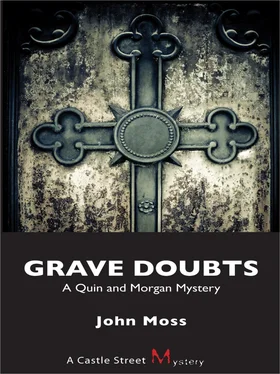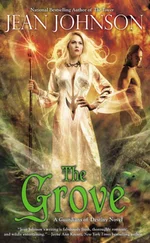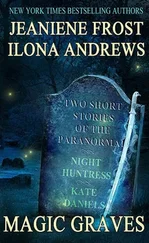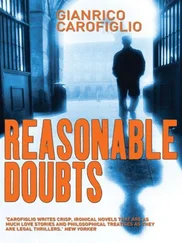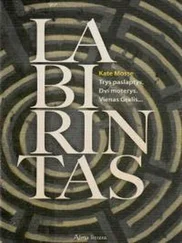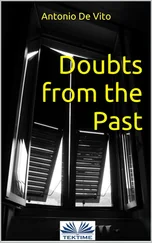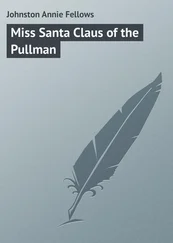John Moss - Grave doubts
Здесь есть возможность читать онлайн «John Moss - Grave doubts» весь текст электронной книги совершенно бесплатно (целиком полную версию без сокращений). В некоторых случаях можно слушать аудио, скачать через торрент в формате fb2 и присутствует краткое содержание. Жанр: Криминальный детектив, на английском языке. Описание произведения, (предисловие) а так же отзывы посетителей доступны на портале библиотеки ЛибКат.
- Название:Grave doubts
- Автор:
- Жанр:
- Год:неизвестен
- ISBN:нет данных
- Рейтинг книги:4 / 5. Голосов: 1
-
Избранное:Добавить в избранное
- Отзывы:
-
Ваша оценка:
- 80
- 1
- 2
- 3
- 4
- 5
Grave doubts: краткое содержание, описание и аннотация
Предлагаем к чтению аннотацию, описание, краткое содержание или предисловие (зависит от того, что написал сам автор книги «Grave doubts»). Если вы не нашли необходимую информацию о книге — напишите в комментариях, мы постараемся отыскать её.
Grave doubts — читать онлайн бесплатно полную книгу (весь текст) целиком
Ниже представлен текст книги, разбитый по страницам. Система сохранения места последней прочитанной страницы, позволяет с удобством читать онлайн бесплатно книгу «Grave doubts», без необходимости каждый раз заново искать на чём Вы остановились. Поставьте закладку, и сможете в любой момент перейти на страницу, на которой закончили чтение.
Интервал:
Закладка:
Morgan surprised his teachers and puzzled his parents by staying in school and by winning a scholarship to the University of Toronto, and even more by accepting. The only one not surprised was Morgan. At seventeen he knew he was smart. He knew his parents were smart as well, and that made him bitter. Whenever he purged himself of esoteric facts over dinner, they were indulgent, if sometimes baffled. But when he explained to them the most complex aspects of high-school science or the arcane intricacies of literature and history, they immediately understood.
Not that they talked a lot, especially to each other. For the most part Darlene and Fred lived parallel lives in a mean environment and conversed mostly through their son. When I left, he thought, they had nothing to say.
He moved into a grotty room on St. George Street close to campus. His most intimate associates were a band of mice whose presence he entertained with grudging congeniality. After catching one in something called the Mouse Motel and watching it lurch about, trying to free its feet from the gluey substance on the miniature floor, he abandoned all thoughts of extermination, kept his food securely stored, and occasionally bought the mice cat kibble for treats.
In the summers he worked at high-paying roughneck jobs in the north, and while he visited his parents from time to time he never again stayed overnight. By the end of his four years as a student, he had almost fallen out of the habit of visiting them altogether. In the winter of his last year the three of them got drunk in a squalid familial gathering he never wanted to repeat.
He didn’t tell them about graduation. At the end of the summer he left for Europe in search of a personality that would bring the disparate parts of his being together. After two years he came back. His father died soon after his return, and his mother died a year later.
Morgan’s mind teamed with small images of a world gone forever. He could smell the tobacco scent of his mother making corned beef and cabbage, her hair wisping down over one eye. He could hear the tired stomping of his father coming up the front steps, see himself running to the door to meet him. He could feel the safe embrace of his bedroom, listening to the television drone downstairs while reading about dinosaurs or space travel or pyramids, and later, as he got older, about cultural theory and quantum mechanics.
Morgan pulled the covers close around him; he was homesick.
The telephone rang and he answered it and again there was only a tone. He must have been asleep. He was not sure if it had actually been ringing or if he had dreamed himself awake.
He dialled Miranda’s number. A sleepy voice answered.
“Did you call me?” he asked.
“Who? Morgan, no, I’m asleep. And I will be again if you’d go away. I’m gonna hang up.”
“You’ve never hung up on anyone. You couldn’t.”
“Wanna bet?”
Click.
Well, anyway, he thought, it wasn’t her calling. He lay back and waited. After a few minutes, the telephone rang; this time it was real.
“Morgan?”
“Yes.”
“Was it anything important?”
“What?”
“Your call?”
“No.”
Click.
He looked at his watch. It was ten-thirty.
He got up, showered, and dressed. After a large breakfast to compensate for the lack of sleep, which included more than his usual ration of bacon and several extra pieces of toast, he settled onto the blue sofa to read. He fingered the book on Persian history without opening it. It was a bit of what Miranda would call “a snare and a delusion” — a 1985 reprint of a nineteenth-century text, with a new, tooled cover embossed in gold, not published to be enjoyed but to be admired.
He filed the book on a shelf and retrieved his Saturday Globe and Mail from the turgid slush on his stoop. It was the only paper he had delivered — his weekly fix of news, commentary, and culture. Not necessarily light reading, but an eclectic diversion for a couple of hours.
Morgan always read the paper sequentially, from front to back. Miranda declared she had never encountered such absurdity. No one reads newspapers in order. They weren’t even designed that way. Sometimes he was intentionally perverse.
On page ten he came across a short article headline BONES OF CONTENTION. Cute, he thought, then blanched when he realized the story was about their doomed lovers at Hogg’s Hollow.
How on earth did the paper get the story in time for the morning edition? It had to have been called in, but by whom? Headquarters? Highly unlikely. The coroner’s office? They never release information unless in the aid of an inquest. Certainly not Miranda. He and Miranda avoided publicity — it interfered with their work. Even though as a team they were a minor legend among their colleagues for eccentric efficiency, they had managed to avoid the kind of celebrity that subsumes individual cases in a running account of the detectives who solve them. It would not have been Officer Naismith. That left Dr. Hubbard or Professor Birbalsingh.
It was no surprise, then, that the forensic anthropologists were mentioned by name, each spelled correctly. Everything else in the article was tantalizingly macabre, yet intriguingly vague. This account was fed to a desk reporter by someone in sufficient authority to be credible and skilled in the art of public relations. It was not presented as a crime story but as an historical curiosity. The readers’ empathy was encouraged not for the victims but for the scientists involved in resolving their identity — scientists whose determined expertise would unlock the secrets of their morbid embrace.
Annoyed by the Globe article, Morgan grabbed his coat and set out for Cabbagetown. As he walked along Harbord Street into the heart of the U of T campus, he tried to stabilize the source of his ire, which hovered somewhere between amused irritation and genuine anger. The publicity was proprietary, a declaration by the forensic anthropologists of ownership. Good for them; damn their sense of entitlement.
In front of Hart House, he stopped to dump snow from a shoe, balancing precariously on one foot. He stared intently at a gritty lump of ice. His father had taught him the secret of balance, how to put on socks in a standing position: fix your gaze on a particular spot and the wavering stops. His father taught him to splash cold water on the back of his neck in the morning to eliminate grogginess, to spit on his shoes for the final polish, to savour the taste of authentic ginger beer, to discriminate among newspaper comic strips, to use chopsticks, to blow his nose without a tissue — snorting through one nostril at a time, pressing the other — when no one was watching.
Morgan looked around at the architectural dissonance that skirted University Circle. Nothing had changed in twenty-two years. In this season, the buildings looked bleak, the flowerbeds were like burial mounds, and the shrubs were tangles of dried sticks or clumps of bedraggled green. After a night of sleet, followed by a cold turn that left the air crisp, the sky an intense winter blue, and the white a translucent gathering of all the colours in the spectrum, the snow-covered lawn glistened in comical contrast.
The main door into the anthropology laboratories was locked but Morgan called building maintenance on a campus emergency phone and when someone showed up he flashed his badge and was admitted without being asked for an explanation. He was not expecting so much activity behind closed doors on a weekend, as he searched for the forensics lab — graduate students at their Sisyphean labours, earning their meagre stipends. Time off, he surmised, is for faculty — unless they have just been presented with disentombed cadavers in pristine period dress.
Читать дальшеИнтервал:
Закладка:
Похожие книги на «Grave doubts»
Представляем Вашему вниманию похожие книги на «Grave doubts» списком для выбора. Мы отобрали схожую по названию и смыслу литературу в надежде предоставить читателям больше вариантов отыскать новые, интересные, ещё непрочитанные произведения.
Обсуждение, отзывы о книге «Grave doubts» и просто собственные мнения читателей. Оставьте ваши комментарии, напишите, что Вы думаете о произведении, его смысле или главных героях. Укажите что конкретно понравилось, а что нет, и почему Вы так считаете.
